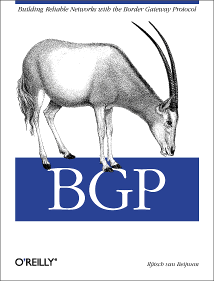
|

|

|
|
Home ·
BGP Expert Test ·
What is BGP? ·
BGP Vendors ·
Links ·
Archives ·
Books ·
My New BGP Book | ||
 (advertisement)
(advertisement)
| ||
|
Database is unavailable at the moment. Please check back soon.
|

|

|

|
|
Home ·
BGP Expert Test ·
What is BGP? ·
BGP Vendors ·
Links ·
Archives ·
Books ·
My New BGP Book | ||
 (advertisement)
(advertisement)
| ||
|
Database is unavailable at the moment. Please check back soon.
|
